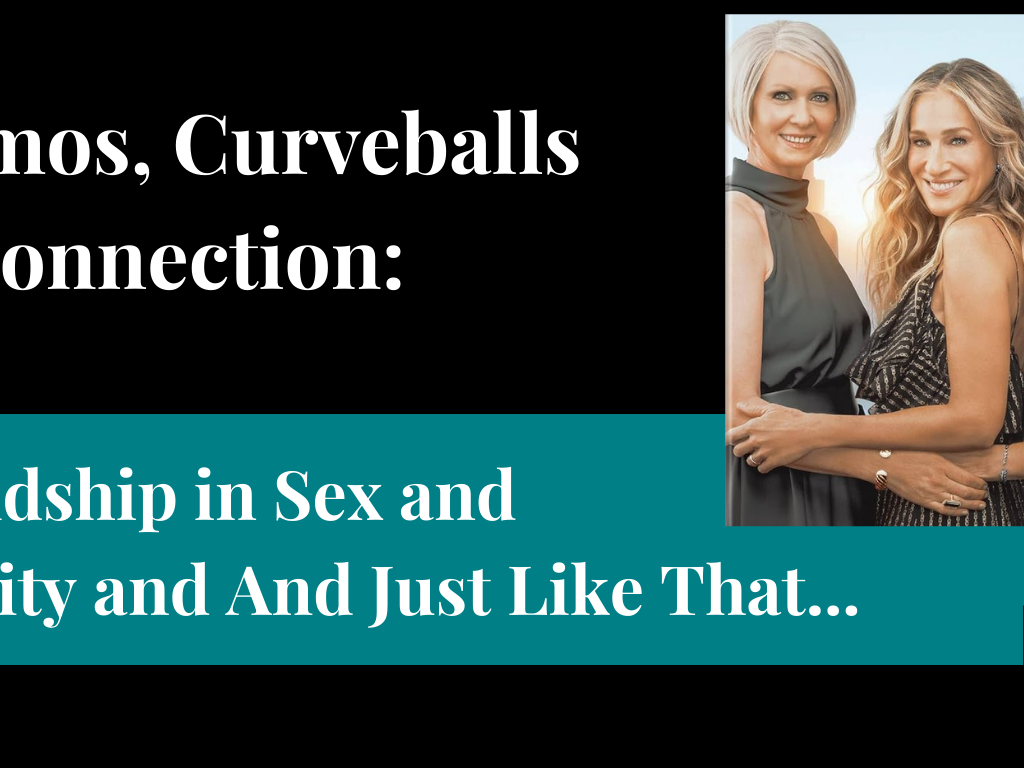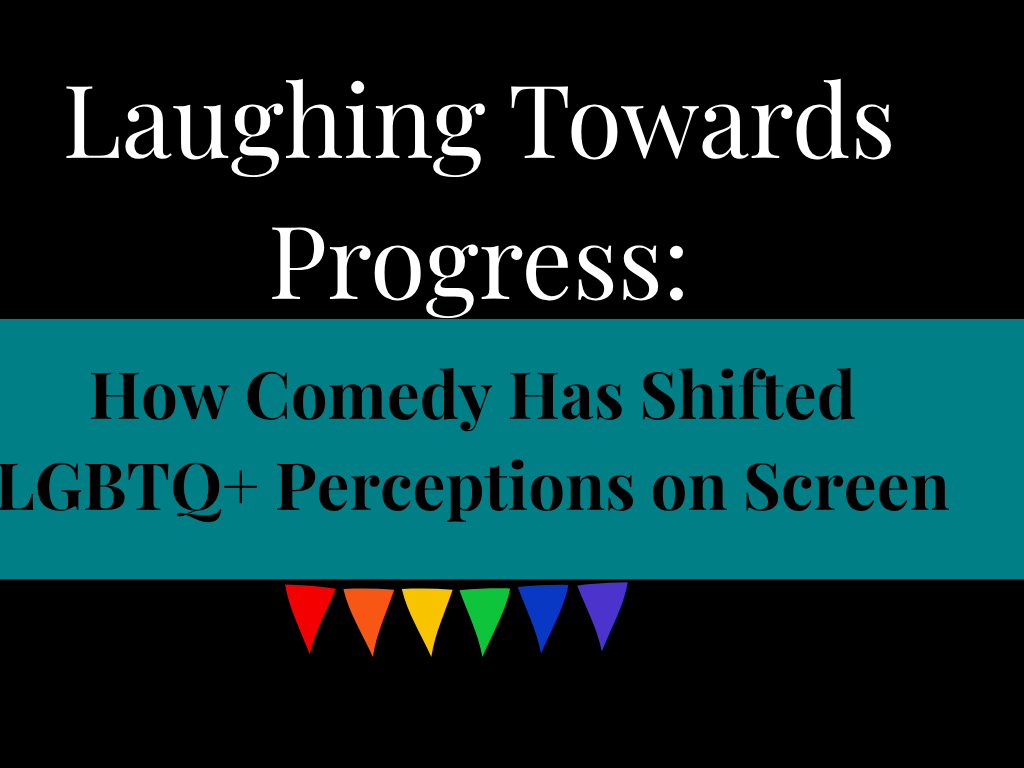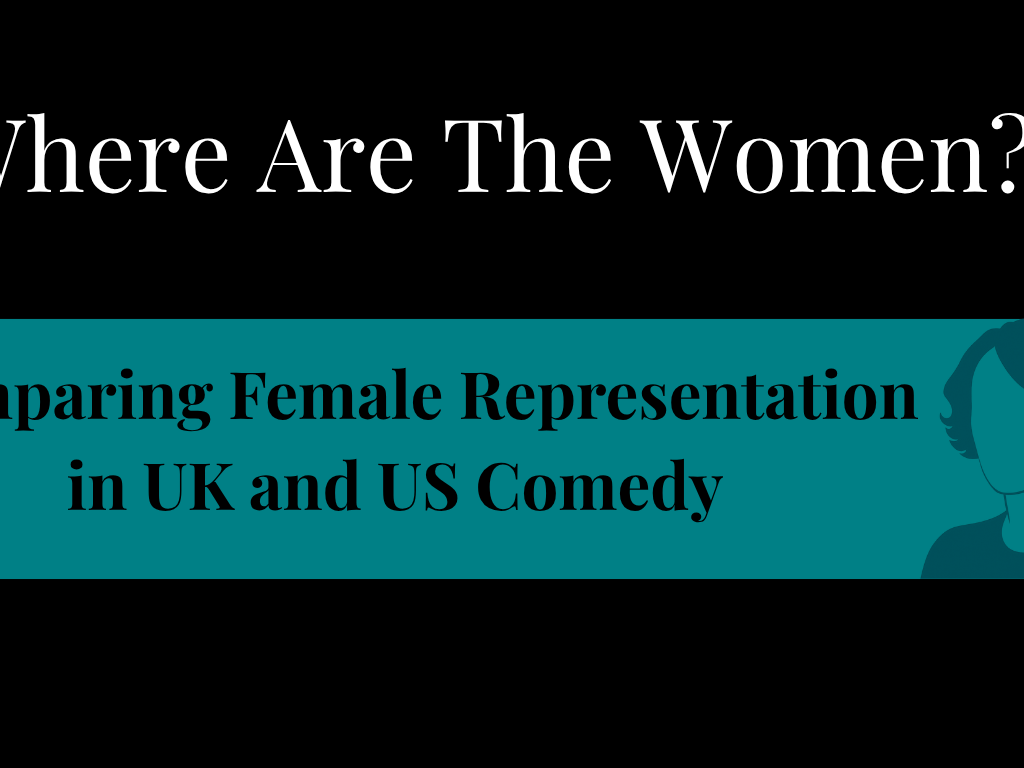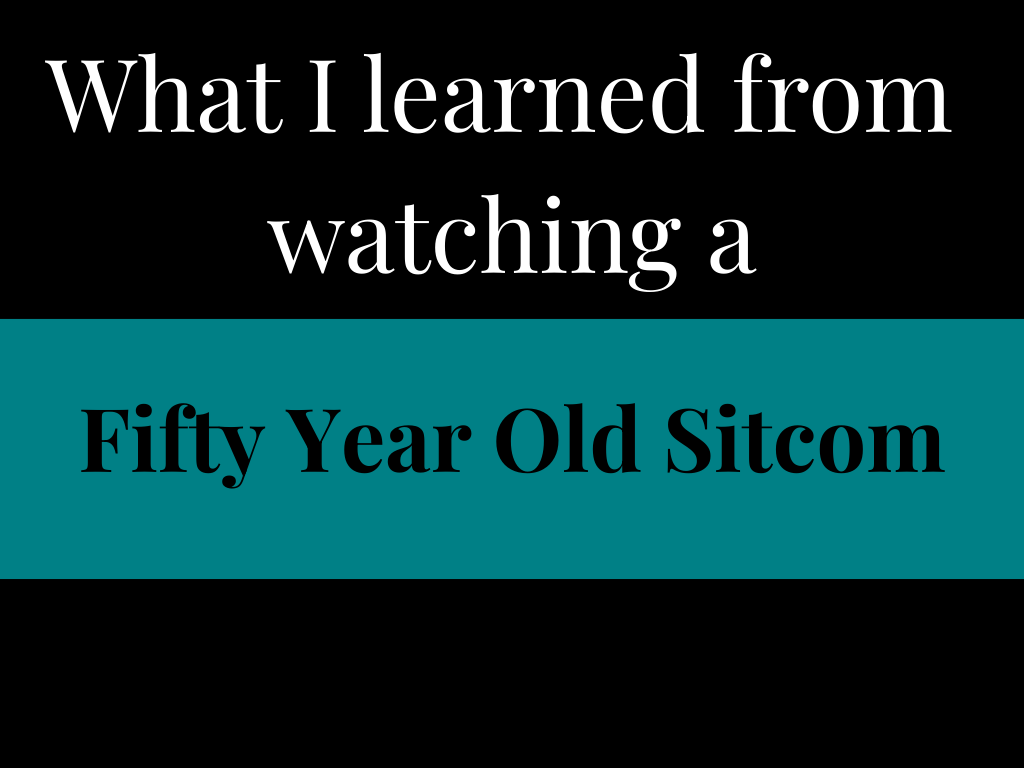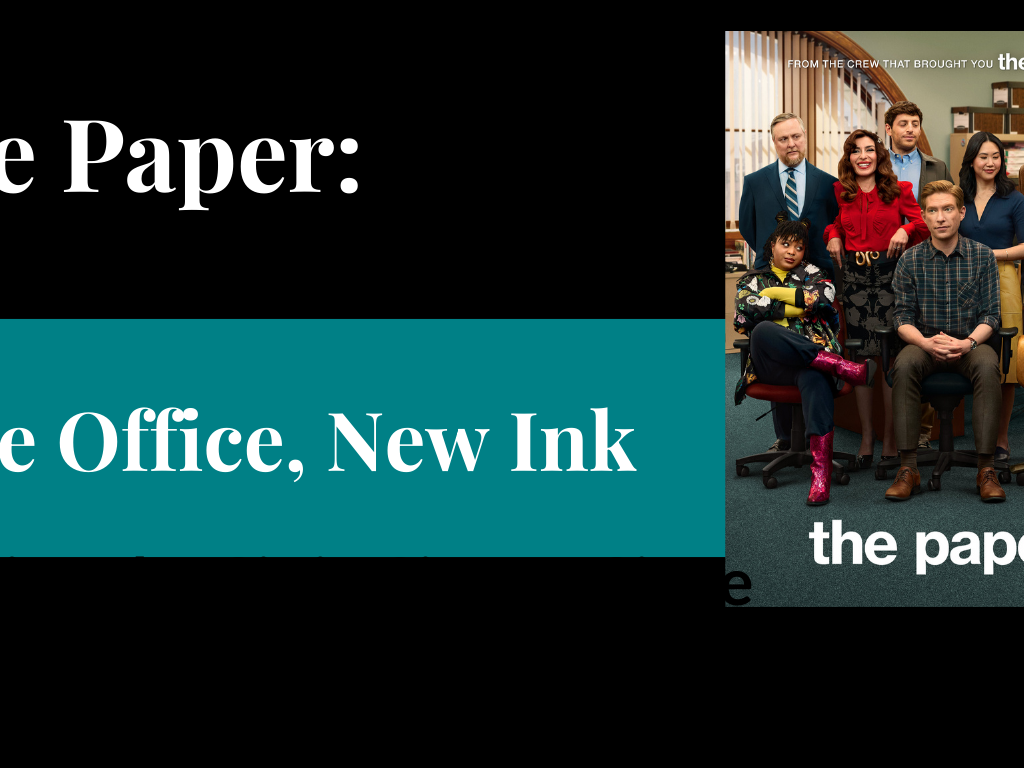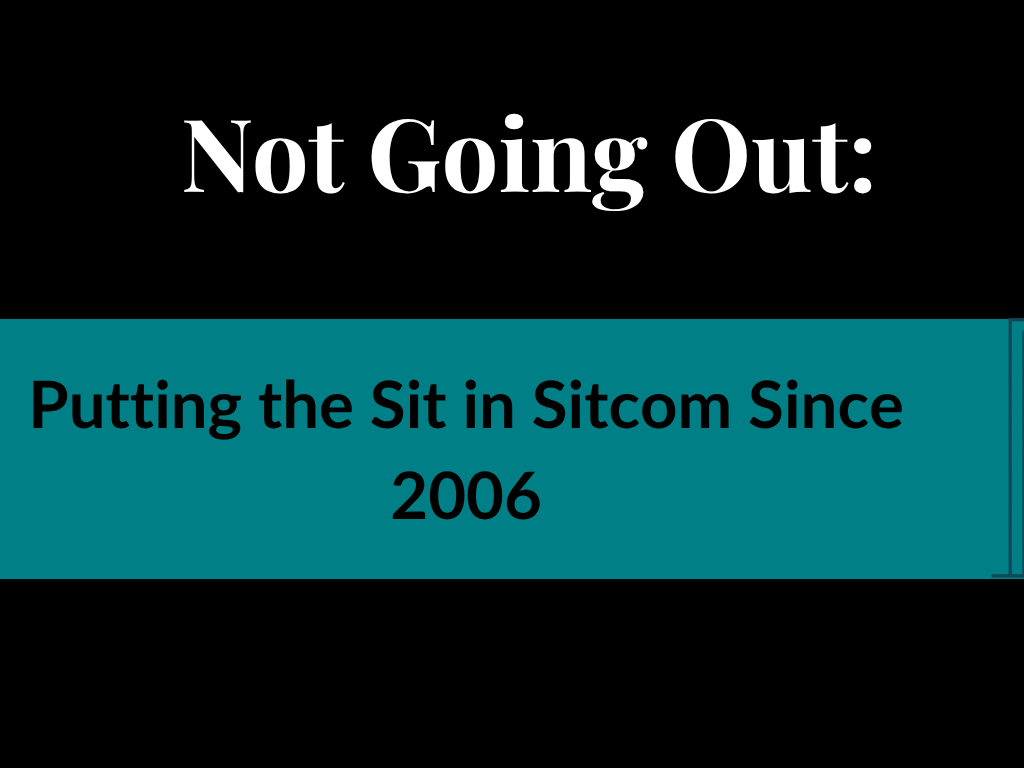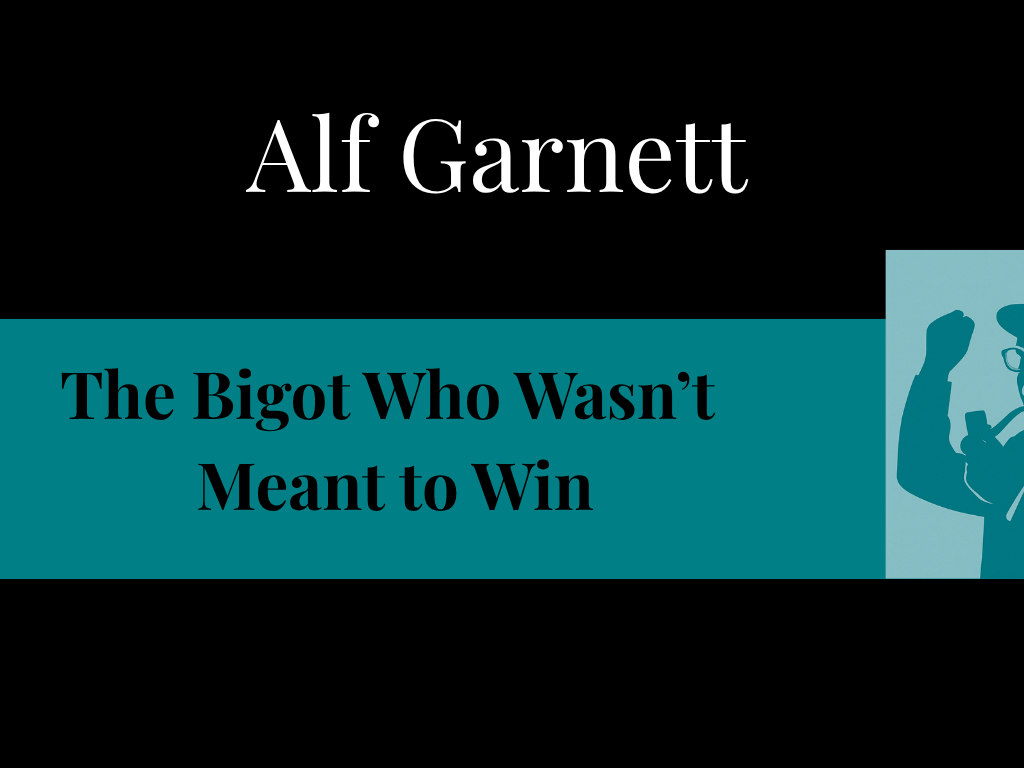Fat Characters and Fat Jokes
Why We Need to Get Over Ourselves
Rather listen than read? Here is the audio.
Note: I use the word ‘fat’ a lot in this blog. I know it can be triggering. Here, it’s used without shame, because owning it takes away its sting.
In the new comedy series Too Much, the main character is overweight. That’s just a fact. It exists. She exists. And in her relationships? It’s not discussed. Not even once.
The Netflix comedy Too Much dropped on Netflix this summer. To be clear, there is a lot to like about it, especially episode 5 Pink Valentine, which probably deserves a post all of its own. Some critics, particularly overweight women, have said this feels unrealistic. “In real life,” they point out, “someone would bring it up.” And they’re right, in the sense that in the real, messy world, plenty of people feel entitled to comment on your body. Strangers, friends, relatives, colleagues, the woman at the bus stop will all have something to say. Usually in a tone that suggests they’re doing you a favour, even as you feel your soul slowly crawl away for a quiet cry.
But what if Too Much isn’t trying to reflect that? What if, like Dan Levy’s approach to Schitt’s Creek, it’s operating in a different kind of world? Levy famously made the choice not to include homophobia in Schitt’s Creek. It wasn’t that he didn’t know it existed; he wanted to show what life could look like if it didn’t. It was a conscious act of utopia-making. Love between men and love between women just… existed. No tortured coming-out arcs, no hate crimes, no slurs.
Maybe Lena Dunham, who created Too Much, is taking the same approach. A world where fatness is a non-issue. Nobody comments. Nobody uses it as shorthand for laziness, stupidity, or gluttony. That’s the dream, isn’t it?
Except, of course, the problem is that we don’t live in that dream world.
Comedy has a long and messy history with fat characters, and it’s not a glowing report card. Take Friends. We got “Fat Monica”. A recurring flashback gag that basically boiled down to “Look! She’s dancing in a fat suit! Isn’t that hilarious?”
The joke was never Monica’s wit or personality; it was her body. The very sight of her was supposed to be the punchline. And the “lesson” baked into it? Once Monica lost the weight, her life magically got better. She found confidence. She found love. She found Ross stopped mocking her. What a coincidence!
It’s not unique to Friends. In New Girl, Schmidt’s “Fat Schmidt” flashbacks worked the same way. Every scene was a visual joke about how pathetic and ridiculous he was when he had more body mass. His weight wasn’t just about appearance; it was shorthand for being socially hopeless and weak-willed. The “real” him was only unlocked once he was thin.
What makes fat jokes harder to challenge is when they come from so-called “nice” characters. Take Parks and Recreation. Beloved series. Warm, progressive, heartfelt. But watch closely and you’ll see a steady drip of jokes about the citizens of Pawnee being fat, lazy, and stupid; the three are often presented as a package deal.
It’s not just villains making these comments. It’s Leslie, Ben, and other supposedly kind-hearted leads. The implication? Mocking fatness isn’t cruelty; it’s just harmless ribbing because, well, it’s true, isn’t it? And if even the nice characters think it, it must be fine.
Except it isn’t. What you joke about says something about what you believe, even if you coat it in charm.
There was a brief, shiny moment when body positivity felt like it might actually stick. Fat models on magazine covers. Social media campaigns celebrating cellulite. Big brands pretending to care.
Then came the inevitable pushback. The manosphere cranked up the volume on its tired talking points: fatness is laziness, fatness is unattractive, fatness is a moral failing. The patriarchy nodded along, as it always does, because controlling women’s bodies is one of its favourite hobbies.
Now we’ve entered the era of the “fat jab”. A medical injection designed to aid rapid weight loss. These are being promoted so aggressively, you’d think they were a miracle vitamin. Never mind that they can cause pancreatitis, gastroenteritis, and in rare cases, death. The marketing is relentless. If you’re even slightly overweight, people will ask why you’re not on them. Not in a whisper, either. Straight to your face.
We’ve swapped “Have you tried going to the gym?” for “Why aren’t you on Ozempic?” Same judgment, shinier packaging.
If Too Much decided to skip all that and make its lead’s weight irrelevant, it’s because in real life, fatness is often used as a weapon. The Sky Comedy Mr Bigstuff nailed this in one scene. Kirsty (played brilliantly by Harriet Webb) has a mum who uses her weight to put her down. Not in a clumsy, “I’m worried about your health” way, but as a calculated strike to diminish her.
What’s beautiful in the episode is that Lee (Danny Dyer) and Glen (Ryan Sampson) immediately tell the mum to stop. No hesitation, no awkward laughs. Just: stop. That’s how you write fatphobia. You show it, and you show it being challenged.
We talk about diversity a lot in TV and film, but too often it’s a narrow box-ticking exercise. A gay/trans character here, a person of ethnic minority there. Throw in someone with a visible disability, and congratulations, you’ve done inclusivity. But diversity without body diversity is performative.
If all your “diverse” characters are still thin, toned, and conventionally attractive, what are you really saying? That difference is fine, as long as it’s photogenic.
It’s not that we need to erase fatphobic characters entirely. We need them written in ways that make it clear their worldview is the problem. Like the Mr Bigstuff’s mum. Like the background townsfolk in Pawnee could have been, if Parks and Rec had decided to put them in their place instead of joining in the joke.
And here’s where I circle back to Too Much. I understand the instinct to create a character whose weight is a total non-issue. It’s hopeful. It’s radical in its own way. But there’s also a risk: that by ignoring reality, you erase the lived experience of people who do face those comments, microaggressions, and outright discrimination every day.
Maybe Dan Levy could remove homophobia from Schitt’s Creek because LGBTQ+ people already get to see endless media where it’s the main plot point? For once, he wanted to give them a break. Fat people don’t get that balance. Their representation is still overwhelmingly negative. They’re still “before” pictures, sidekicks, punchlines, or cautionary tales.
So when Too Much sidesteps the issue, it doesn’t land in the same way. It risks feeling like wishful thinking instead of pointed utopia.
Comedy can be vicious. That’s part of its power. But it can also punch up instead of down. We can have fat characters whose weight is acknowledged but not their sole trait. We can have fat jokes that aren’t about shame but about absurdity, joy, and solidarity. We can write moments where fatphobic comments are met with witty comebacks, awkward silences, or a flat “What’s your point?”
Most importantly, we can stop pretending weight equals worth. Because it doesn’t. And it’s not clever to act like it does. It’s just lazy writing dressed as truth-telling.
The reality is, fat characters deserve the same treatment as any other marginalised group on screen: complexity, dignity, and a range of stories that go beyond their difference. And if we want that perfect world Too Much seems to live in, we have to earn it. Which means showing the prejudice and showing it shut down.
Until then, let’s retire Fat Monica. Let’s put the Fat Schmidts in storage. And let’s start creating characters who are fat, funny, flawed, and full of life, and whose bodies aren’t a shorthand for anything except themselves.
Because if we can imagine small towns without homophobia, we can imagine comedies without fatphobia. We just have to want to.
Agree? Disagree? Let me know below
Thank you!

